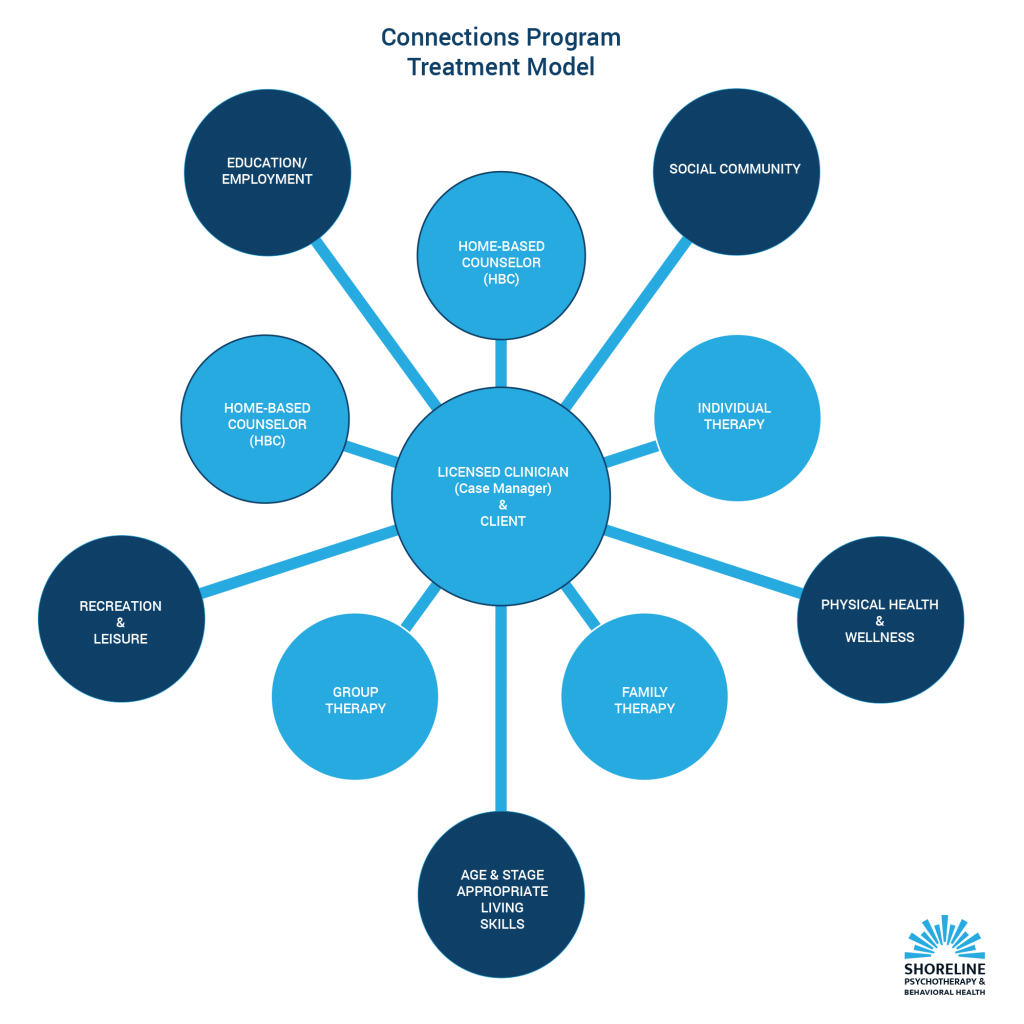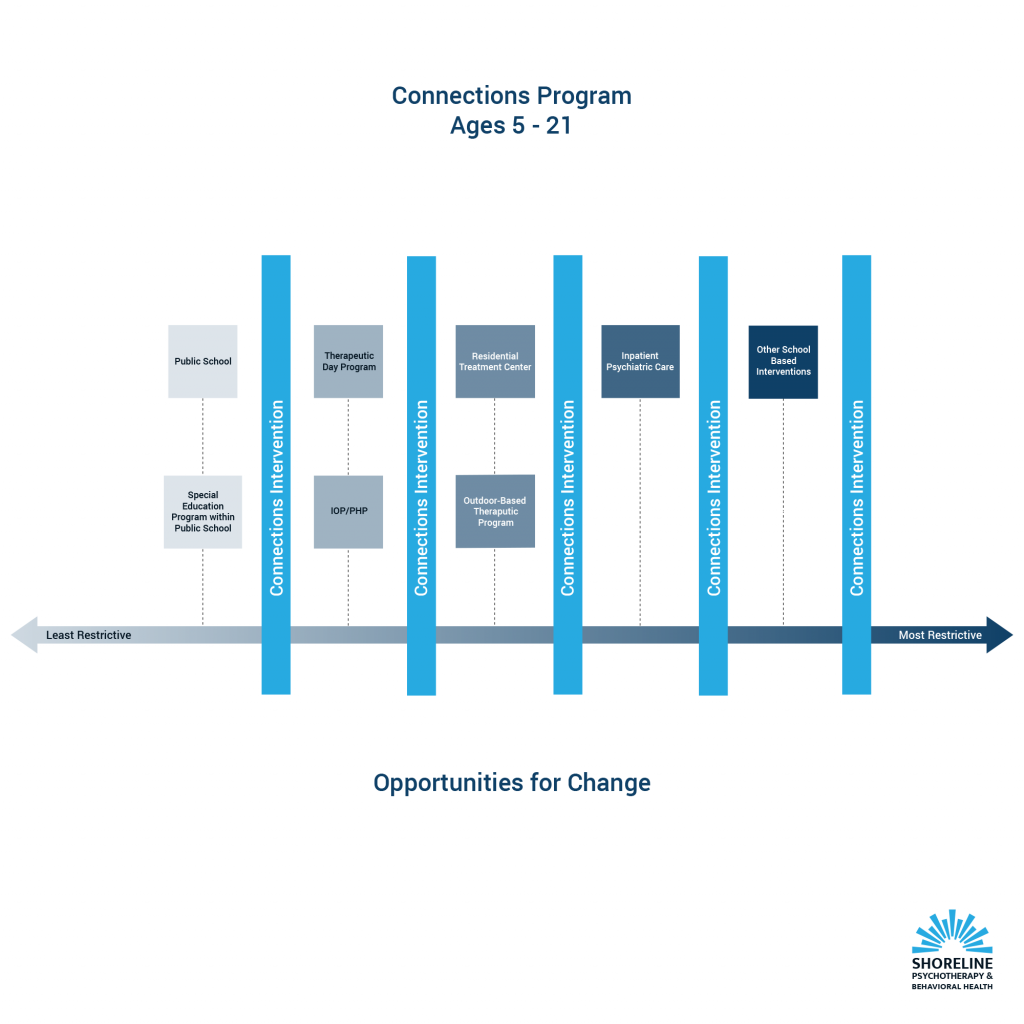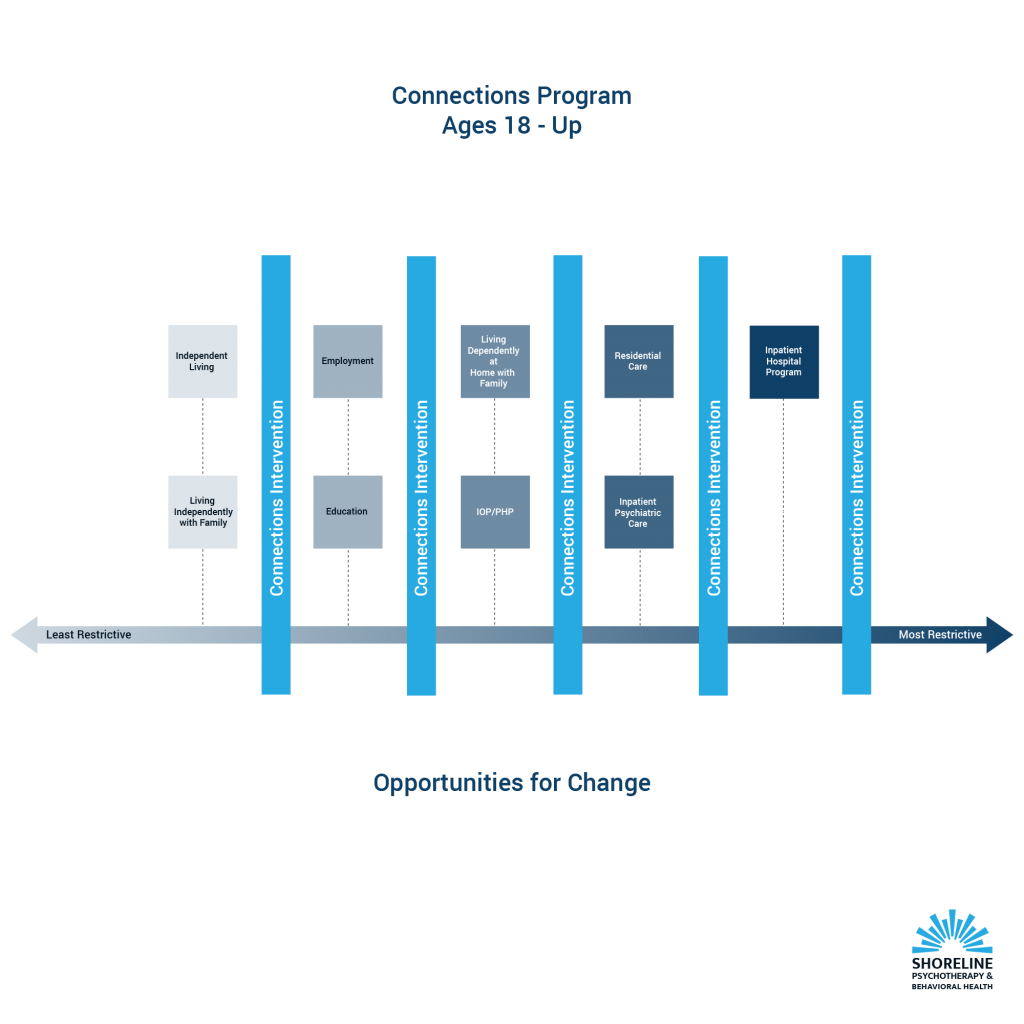COURAGE. CONNECTION. CHANGE.
The Connections Program stems from the theory that the more points of contact an individual has, the healthier they will function. Consistent interaction is a foundational necessity in establishing positive and productive relationships. Our program maintains that clients are in frequent contact with Connections Team members as they partner in the process of developing emotional independence.
Connections Program clients benefit from a multi-faceted approach to treatment. Our model combines psychotherapy with team-focused practices intended to foster age-appropriate independent daily living skills, physical health and wellness, and socialization and community exposure, all within the SPBH system.
Connections Teams help clients examine and understand their needs and diagram action plans to address specific goals. We support a variety of executive functioning needs, from organization and cleaning of the living space, to scheduling appointments, to creation of routines, to instructing and supervising tasks of daily living, all the while aiming to improve emotional regulation and distress tolerance. All components of the Connections Program are geared toward the client’s active participation in improving their quality of life.
- Participation in the Connections Program is dynamic and interactive:
- The client and family utilize the SPBH office for services.
- Connections Teams visit and work with clients in their home and in the community.
- Connections Teams guide and support clients as they implement newly learned skills across different environments
The Connections Program Gives Clients the Opportunity to Build Momentum in Their Treatment
The Connections Program gives clients the opportunity to build momentum in their treatment. Our points of contact serve as the structure they can lean on in times of distress, and the continuity of care received provides a platform for sustainable growth and change. Our goal is for our clients to achieve developmentally appropriate emotional independence and interpersonal effectiveness and functioning.
This model represents a least restrictive intervention. Our aim is to keep clients connected to their environments: residing at home with their families, maintaining school attendance and/or engagement at work, and remaining active in the community, all while accessing treatment that can be integrated to their daily living.
Connections Teams embrace opportunities to collaborate with previous or existing members of a client’s support system, including schools, therapists, medication providers, primary care physicians, or other agencies and programs in which the client has participated. We are an open system and appreciate past and current points of contact, as they can provide valuable history, context, and insights to the client’s present state. SPBH strongly believes in forming community partnerships and viewing the client’s needs from many angles to gain the greatest understanding of their struggles, and to help clients maximize their personal growth.



Specializing in Family Centered Therapy, Community Partnerships, and a Systems Approach in Connecticut
Call Us: 1.203.453.2999